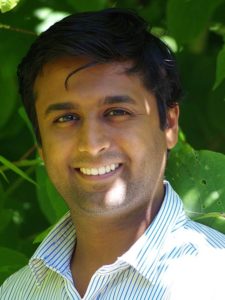About
Scope
A new paradigm in material synthesis is emerging, in which living cells are used as active components in man-made materials to augment non-living matter with life-like capabilities. “Living Materials” promise to change the way we design technological and medical devices, and open infinite possibilities for programmable functions. Self-ventilating sportswear, bio-syncretic robots, self-renewing bioremediation devices, biosensing tattoos, personalized drug delivery systems or self-healing concrete walls are just a few examples.
This conference will provide an open forum for sharing recent advances and discussing current challenges and potential of Living Materials among experts and newcomers in the field. It will gather leading scientists and industrial partners, and tackle fundamental science and application-oriented approaches. The event will be organized with a max. of 100 participants.
Session Topics
- Compatibilization of living components with non-living matrices
- Processing technologies for fabricating Living Materials
- Programming living materials with synthetic biology tools
- Technical application scenarios for Living Materials
- Special focus session: Living Therapeutic Materials
- Discussion forum: Risks, regulatory issues and future of Living Materials
Organizing Committee
 |
 |
|
| Aránzazu del Campo
INM – Leibniz Institute for New Materials, Saarbrücken, Germany |
Shrikrishnan Sankaran
INM – Leibniz Institute for New Materials, Saarbrücken, Germany |
|
 Conference Office:
Conference Office:
Christine Hartmann
INM – Leibniz Institute for New Materials
Campus D2 2
66123 Saarbrücken
Germany
Phone: +49 (0)681-9300-244
Fax: +49 (0)681-9300-223
Email: livmat2020@leibniz-inm.de
News
All newsLiving cells are capable of synthesizing a staggering number of complex molecules from a few precursors. Such processes in natural materials allow for continuous, efficient, and autonomous (re)generation and adaptation in response to external factors.
- Caroline Ajo-Franklin, Rice University, Houston, TX, USA
- Ruth Freitag, University of Bayreuth, Germany
- Neel S. Joshi, Northeastern University, Boston, MA, USA
- Ben (Keith) Keitz, The University of Texas at Austin, TX, USA
- Holger Lößner, Paul-Ehrlich-Institut, Langen, Germany
- Heinz Lubenau, VAXIMM GmbH, Mannheim, Germany
- Marjan de Mey, Ghent University, Belgium
- Anne S. Meyer, University of Rochester, NY, USA
- Klaus Pellengahr, Novozymes Berlin GmbH, Germany
- Karen Polizzi, Imperial College London, UK
- Manuel Salmeron-Sanchez, University of Glasgow, UK
- Wil V. Srubar III, University of Colorado Boulder, CO, USA
- Swantje Strassheim, Federal Office of Consumer Protection and Food Safety (BVL), Berlin, Germany
- Bao Lian Su, Université de Namur, Belgium
- Tzu-Chieh Tang, Massachusetts Institute of Technology, Cambridge, MA, USA
- Wilfried Weber, University of Freiburg, Germany
- Chao Zhong, ShanghaiTech University, China




